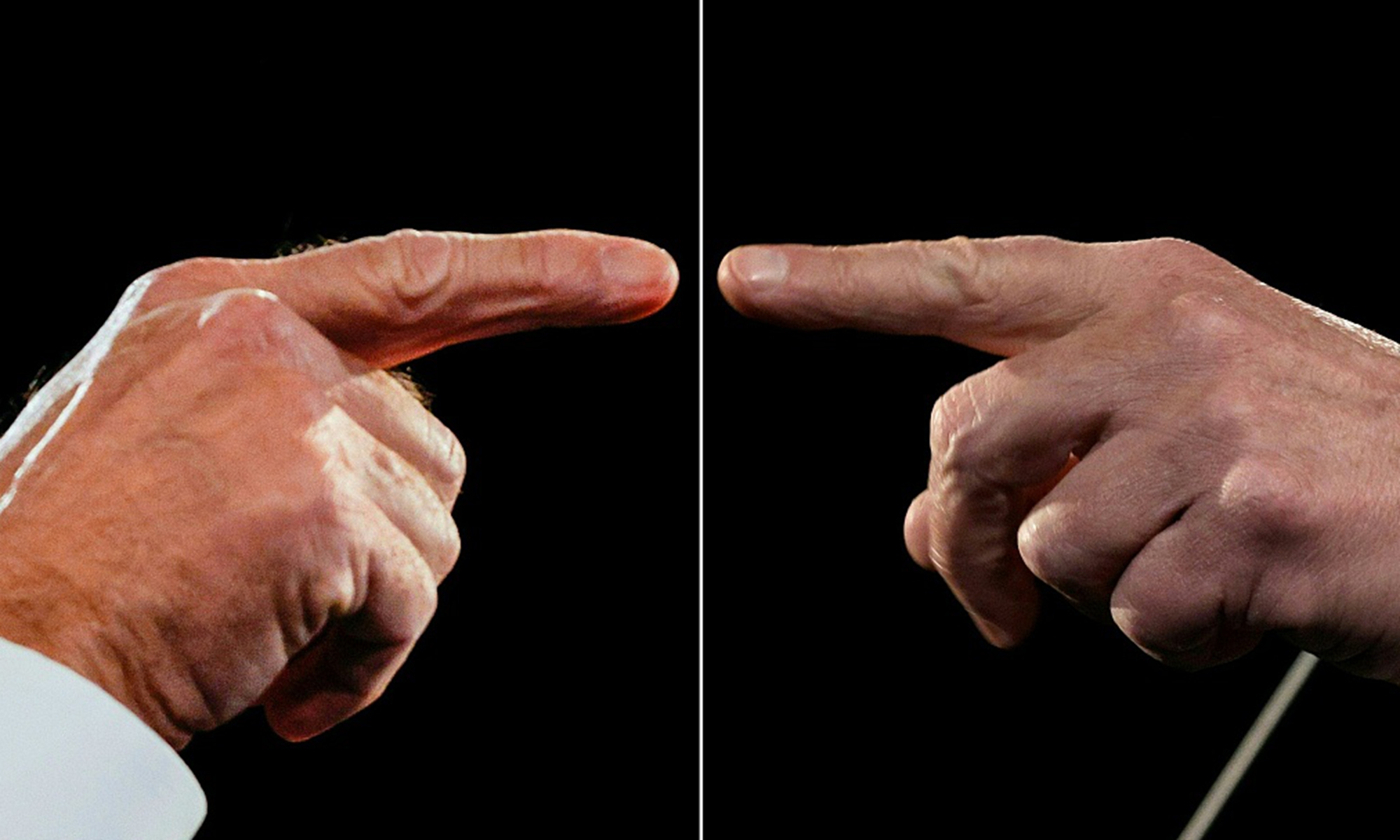US to remain divided after election
By Zhang Jiadong Source: Global Times Published: 2020/11/7 0:08:42

Trump and Biden File photo: VCG
US society under President Donald Trump has seen unprecedented social conflicts. This is reflected by the sharp confrontation between Trump's supporters and opponents during the elections. No matter who eventually wins presidency, these contradictions and divisions cannot easily be eased.
But after the elections, the US might have a chance to reduce tensions. For one, the partisan system of US politics does not fundamentally change. Although division occurs in both the Democratic and the Republican parties, no one in each party has the ability to go beyond the framework of the party. In 1860, the Democratic Party could not reach a consensus, so it had two presidential candidates. Abraham Lincoln from the just formed Republican Party won. Southern Democrats refused to accept him as president. It was the decades of escalating partisan violence, often around elections, that led to the Civil War.
Such a situation did not occur this year. This means the partisan system of the US is still the main pillar of the US political structure.
For another, judging from the results, contradictions and divisions in US society have not shaken US politics. The structural changes in US society have not gone beyond the states, let alone the federal level.
It is anticipated that a new point of social balance may be reached after the election. But the origin of social conflicts in the US has not been solved. Rather, it can be worsened.
There are two main contradictions in the US. First, contradictions between the whites and ethnic minorities. The advantageous position of the whites continues to decrease and they would lose their dominance over the country in the future. This makes their tolerance and confidence in ethnic minorities decrease as well. The ratio of the population of ethnic minorities is rising. This increases their demand for equality and rights.
It is normal for ethnic minorities to demand for corresponding political, social, economic and cultural positions, but this will pose a severe challenge to the cultural, religious and racial nature of the US. As the US population continues to lose balance, related conflicts will break out or even become a periodic and escalating crisis.
Second, contradictions between elites and ordinary people. Supporters of the Democratic Party are mainly demotic elites who benefit from globalization and liberalization of the global economy, and those who support the Republican Party are middle- and lower-class people, and religious conservatives. This is very clear in the county-based electoral maps. Trump-supporting counties that are vast, under populated and economically backward, surround cities and counties that support the Democratic Party, while Democrat-dominated counties and cities use their economic and population advantages to lead the political pattern in some states. The contradictions between elites and ordinary people will not end with the election.
We cannot predict a united or divided future for the US. The US will remain united from outside but divided from within, no matter who is president.
The author is a professor at the Center for American Studies, Fudan University. opinion@globaltimes.com.cn
Posted in: VIEWPOINT